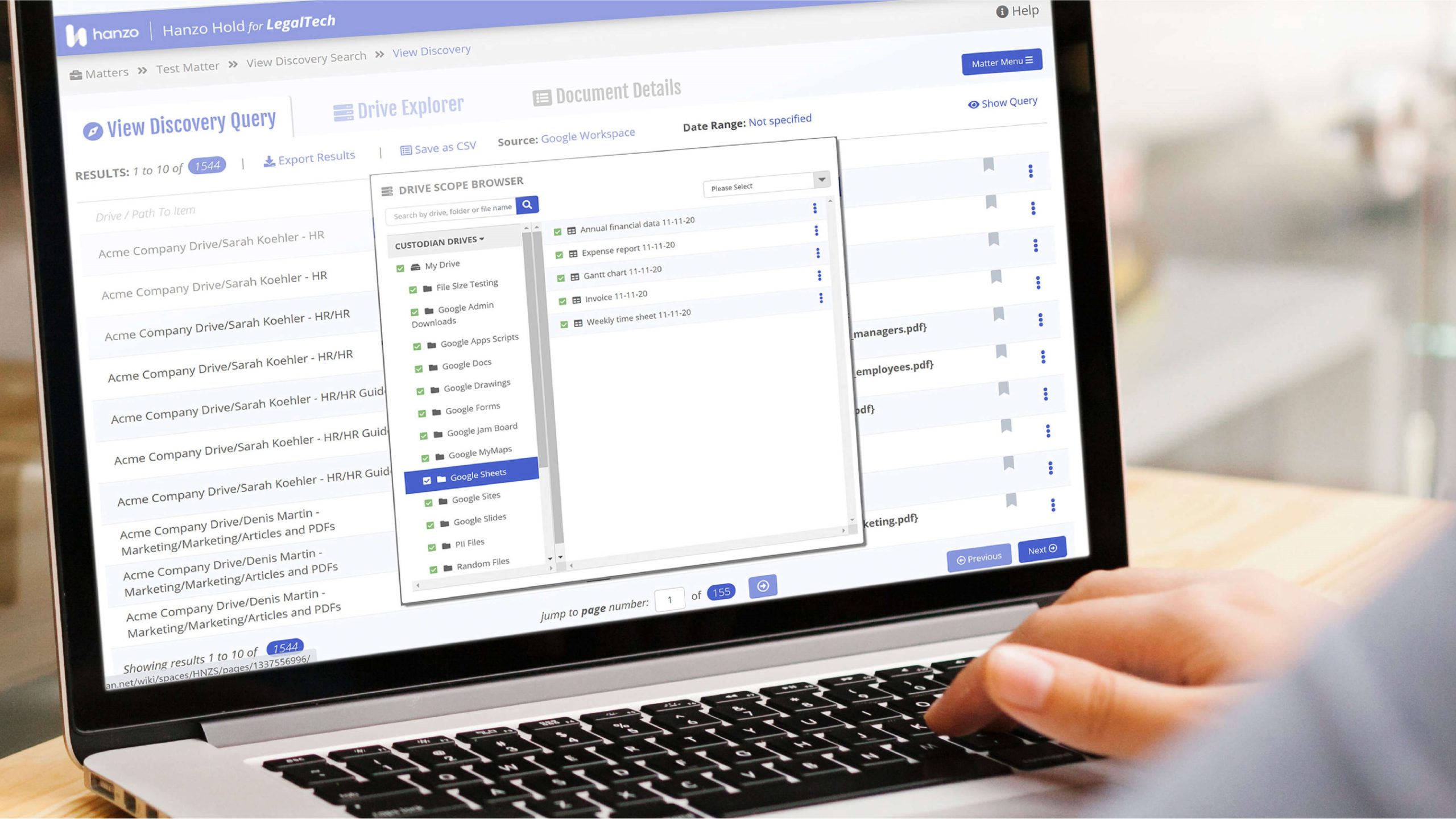The annual Legalweek conference in New York is always the occasion for legal technology companies to roll out announcements of new products and features. This year’s conference, which kicked off yesterday in a virtual version redubbed Legalweek(year) and reformulated as a year-long series of events — is no different, although the announcements seem a bit fewer so far.
In particular, the first day of the conference yesterday brought a flurry of news releases from e-discovery companies. Here are some of the highlights.
Logikcull Offers Free Legal Hold Platform
E-discovery company Logikcull has announced that it is offering free, unlimited access to Logikcull Hold, its platform for creating and managing defensible legal holds.
Logikcull announced the legal hold platform last October and said that, given the positive reaction to it, it decided to launch a free version with all of the platform’s essential features.
A company spokesperson tells me that the free version has most of the functionality of the paid version, but does not have global reporting views or the same SLAs around customer support (24/7/5 vs. 24/7/7). Paid plans also have additional security features.
It does include legal hold templates, automatic reminders for non-acceptance, custodian tracking, advance hold scheduling, one-click custodian release, and more.
A full comparison of free versus paid features is here.
Relativity Announces Redaction Tool
Relativity, the global e-discovery and compliance technology company, announced that it is adding Blackout, a powerful redaction tool developed by Milyli, a Chicago company that develops products and technologies that work with Relativity, to its RelativityOne cloud-based e-discovery platform.
Blackout, which offers automated image and native redactions, will now be known as RelativityOne Redact and, starting in March, will be available as a standard feature for all RelativityOne customers at no cost. Milyli will continue to develop and support Blackout for Relativity Server customers and will continue to offer it as a separate application.
Hanzo Releases Legal Holds Tool for Google Workspace
Hanzo, a company that helps corporations preserve and manage data from enterprise collaboration applications and complex websites, announced the beta release of a new tool, Hanzo Hold for Google Workspace (G Suite), designed to make it easy to manage data discovery and investigations for organizations with large volumes of data in Google Workspace. (See featured image above.)
Offered now to select customers and slated for general availability in April, the new tool is designed to address an underserved need in the marketplace for companies using Google Workspace, including inadequate visibility, over-collecting, limited metadata, and exports that are not in a review-ready format.
Features of the tool include an interface that controls both Google Workspace and Slack, Google Vault control, targeted data collections, enhanced file metadata, full data indexing and search, file versions and history, file tagging, and review-ready exports.
Epiq Launches E-Discovery ‘Excellence’ Consultancy
The global technology and services company Epiq announced its launch of Epiq Empower: Your Discovery Center of Excellence, which it says is a configurable framework built on industry best practices designed to help corporate law departments manage their e-discovery program with a focus on governance, defensibility, risk mitigation and a predictable cost of ownership.
“Epiq Empower provides a consultative approach to establishing or expanding a corporation’s discovery program that provides transparency into quantified efficiencies and spend metrics to effectively manage their eDiscovery portfolio,” a press release says. “Our consultants work to design, build, and implement a center of excellence that is tailored to the client’s specific needs, while providing continuous oversight throughout the partnership.”
Epiq says that each Center of Excellence it designs will include four core components: program management from a dedicated team of Epiq discovery experts; intelligent data management using an array of tools for data governance, legal hold and preservation, advanced ECA, and analytics; core discovery services; and advanced discovery services.
HaystackID Enhances Security Options
HaystackID says it has rolled out a new portfolio of Secure Remote Review 3.0 security enhancements for its ReviewRight e-discovery review technology, offering additional customized levels of security, including specialized layers to protect against malware and unauthorized access to data.
The new security features come in three customizable packages. For those needing the most secure protections, the elite level uses biometric AI technology and features the latest in webcam identity verification technology, including the detection of unauthorized users/objects (cameras/phones) and tracking of the user’s movements and focus.
All three levels ensure connection, communication and compliance with the most stringent legal and regulatory security and privacy requirements, the company says.
You can read more about these enhancements here.
Lighthouse Launches AI-Enhanced Review Platform
The e-discovery and compliance technology company Lighthouse said yesterday it has launched a new in-house technology, Lighthouse Prism, that uses AI and machine learning to improve document review legal processes.
The company says that Lighthouse Prism deploys big data analytics along with expert insights and unified workflow consulting to deliver faster and scalable e-discovery and document review, saving thousands of hours in review time and as much as $1 million in review costs on a single matter.
Lighthouse says that Prism leverages AI-powered analysis of text, metadata, and prior attorney work product to identify and remove duplicate data, make recommendations to consistently code documents across matters, and provide valuable e-discovery insights to organizations, while lowering risks and reducing time and costs.
 Robert Ambrogi Blog
Robert Ambrogi Blog